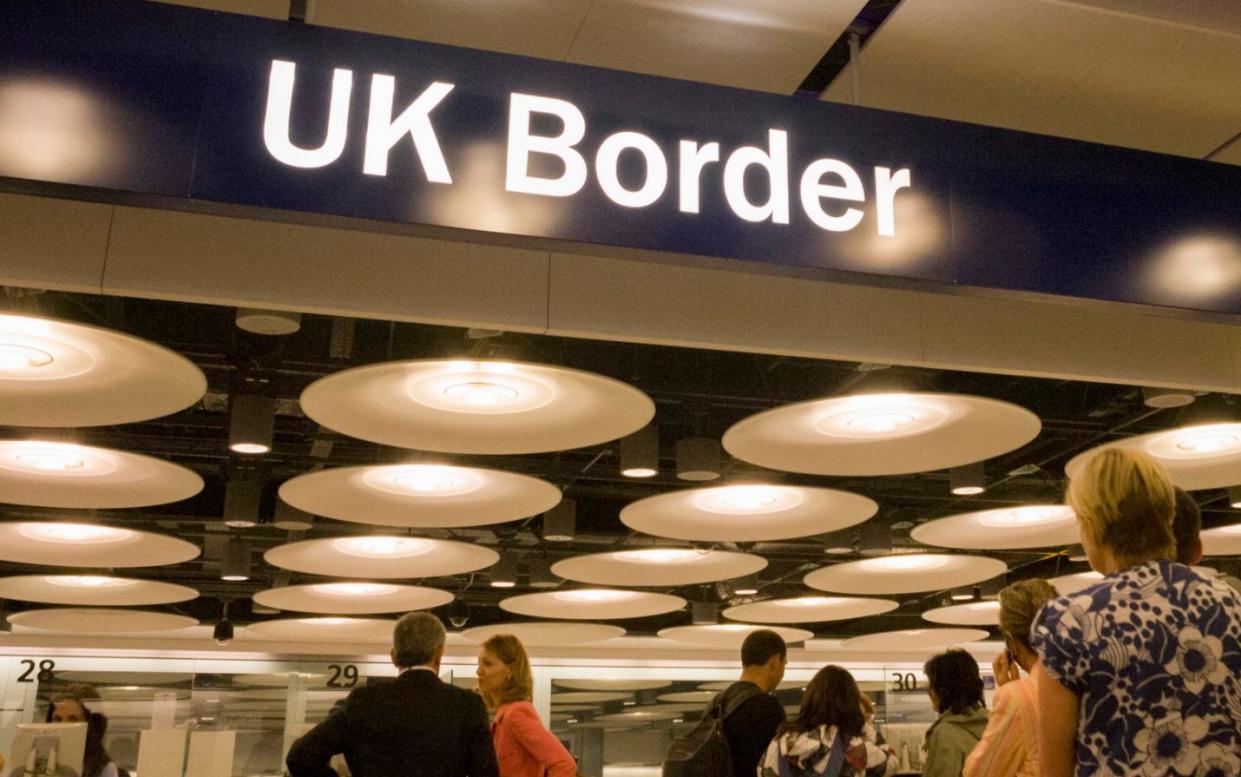Government-funded charity invests in border abolition projects

A charitable trust that has received over £1 million of government funding has announced plans that suggest it will invest in projects which call for the abolition of borders and the dismantling of “harmful immigration systems”.
The Paul Hamlyn Foundation is reopening its migration fund, which has an annual budget of £5million.
Leticia Ishibashi, the foundation’s Head of Migration, said in a statement to mark the fund’s reopening: “Previously, our grant-making was primarily focused on work that fosters positive changes to the UK’s immigration system… our new approach to systemic change focuses on dismantling harmful systems.”
The Paul Hamlyn Foundation, which has a financial endowment of over £800 million, published two statements from Ms Ishibashi in April.
Ms Ishibashi joined the foundation, which has an endowment of more than £800m, in 2017. She previously worked for Sadiq Khan, the London mayor, and according to her website biography she helped “increase access to immigration” in the capital.
The Migration Fund had been under consultation following a 2020 commitment to become an “anti-racist funder”.
Ms Ishibashi claims that immigration systems “are built upon and reinforce systemic forms of oppression”. The foundation’s new fund will support organisations that work towards “shifting power to migrants and their diaspora communities”. This will achieve their aim of “dismantling the hostile environment and other harmful laws”.
A list of resources “that influenced our thinking” is provided by Ishibashi, including books entitled The End of Policing, Abolish Borders: The Case for Abolition, Angry White People and Rules for Revolutionaries.
Conservative Party ‘Islamophobia’
Since the establishment of the group’s migration fund in 2015, previously under the name Shared Ground Fund, the foundation has awarded over £35 million to charities working in the field. Under electoral commission rules, political parties seeking to contest elections can spend a maximum of £34 million during a national campaign.
According to their annual Charity Commission accounts, the Paul Hamlyn Foundation has received £1.36 million in direct government funding since 2020. These grants are used under the organisation’s Act for Change fund, which was supported by the Department for Media, Culture and Sport.
One of the grantees named in the Paul Hamlyn Foundation’s annual report is Hope Not Hate, which received £240,000 in 2023. Hope Not Hate have named Conservative backbenchers Miriam Cates and Jacob Rees-Mogg in their State of Hate 2024 report, with the group’s founder Nick Lowles claiming that the Conservative Party has a “deep rooted problem of Islamophobia”.
Other groups that have received funding under the Paul Hamlyn Foundation’s Migration Fund include the Baobab Foundation, which claims to have received £1 million from the trust to set up operations in 2020. Baobab describes itself as being born out of “generations of anger, frustration and struggle”, explaining its mission as “to significantly scale resourcing to Black and Global Majority communities in the UK, contributing to wealth redistribution”.
Another recipient group is Detention Action, who have pursued legal action against the Home Office, most recently filing a case against the government’s Rwanda plan. The charity was led by Bella Sankey, who has since left the group to serve as a Labour councillor for Brighton and Hove.
Prior to the April 9 relaunch of the fund, the foundation said it would expose “economic extraction, systemic racism, increasing militarisation and discrimination upon which the UK’s immigration system was and continues to be built.” The Nationality and Borders Act, Illegal Migration Act and Safety of Rwanda Bill are all named as examples of “dire” legislation.
EU ‘exclusionary white identity’
The European Union is named as an example of a zone in which borders do not limit “where we go, live, study or work”, but is also described by Ms Ishibashi as being built on “a limited and exclusionary ‘white European’ identity”.
The Paul Hamlyn Foundation was created in 1987 by founder Lord Hamlyn, who died in 2001. His daughter serves as chair of trustees. The trust was formed to support general charitable purposes, with a focus on the arts. Last year it awarded £39.6 million in grants.
Neil O’Brien, a senior Tory MP, said: “It’s a shame to see money that should be used for useful charitable purposes squandered on extreme causes supported by almost no one in Britain, apart from a tiny number of people on the extreme Left.”
The Paul Hamlyn Foundation and Ms Ishibashi were both approached for comment.


